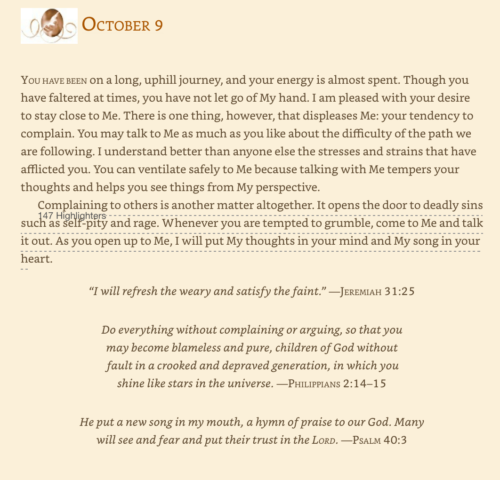Energizing Hope
It is the task of the prophet to bring to expression the new realities against the more visible ones of the old order. Energizing is closely linked to hope. We are energized not by that which we already possess but by that which is promised and about to be given.
—Walter Brueggemann, The Prophetic Imagination
In 1980, Richard Rohr gave a series of talks on the Hebrew prophets. Here he speaks of the hopeful imagination to which the prophets and God invite us:
Prophets nurture and evoke a new way of thinking. They give us images and words which subvert our system and tell us that we haven’t seen the whole picture yet. Prophets are not just concerned about social change for the sake of social change. They are concerned above all with transformation and freedom of the heart, and then out of that free heart, the prophet says, “Listen.” The prophet creates a new, freeing consciousness which allows us to hear the divine word.
In the midst of that freedom, the prophets plant a promise, an alternative and new vision. In the Hebrew imagination, this became the promised land. But the promise never really gets fulfilled. It both tantalizes and torments us with dissatisfaction—and nevertheless calls us forward! It isn’t that God or the prophets are playing games with us. It’s that we are energized by the hope of God’s promises. What gives us the energy and power to keep moving is the promise, the dream, the vision of what could be and what’s beyond the moment. The prophet knows that, and God knows that. In the exodus, God plants the promise in Moses’ heart, and then Moses gives it to the people.
These promises are not lies. They’re true, but they’re not always what we expect or hope for, and so God calls us a little further. This is the way that divine love stretches our hearts. This is the real rebirth. This is the way we’re reborn again and again until we enter, through death, the promise of a deeper life.
The established and dominant culture does not have authentic promises because it seeks to maintain itself. The system has materialistic and self-protecting promises for more money and a better life; it encourages us to consume more and more. It cannot offer a promise which fills and expands the heart beyond itself to the larger world.
God’s promises energize and expand the heart, deepening our capacity for life and our quality of being in this world. They put the authority inside us. This, finally, is the only overcoming of death, the only answer to the absurdity that this time is going to end. That’s what the promises of God do—lead us to the experience of deeper life. The Gospel writers call it resurrection.
Hope, Peace, and Justice
South African Archbishop Desmond Tutu (1931–2021) envisions God’s dream for the world through a message of hope, justice, peace, and inclusion:
Dear Child of God, before we can become God’s partners, we must know what God wants for us. “I have a dream,” God says. “Please help Me to realize it. It is a dream of a world whose ugliness and squalor and poverty, its war and hostility, its greed and harsh competitiveness, its alienation and disharmony are changed into their glorious counterparts, when there will be more laughter, joy, and peace, where there will be justice and goodness and compassion and love and caring and sharing. I have a dream that swords will be beaten into plowshares and spears into pruning hooks, that My children will know that they are members of one family, the human family, God’s family, My family.”
In God’s family, there are no outsiders. All are insiders. Black and white, rich and poor, gay and straight, Jew and Arab, Palestinian and Israeli, Roman Catholic and Protestant, Serb and Albanian, Hutu and Tutsi, Muslim and Christian, Buddhist and Hindu, Pakistani and Indian—all belong.…
We have heard of God’s dream from His prophets throughout history and in modern times from great leaders and humanitarians like Martin Luther King, Jr. and Mahatma Gandhi. King spoke of it … when he dreamed of the day that the sons of former slaves and the sons of former slave owners in Georgia would be able “to sit down together at the table of brotherhood.” [1] Gandhi wrote about it in 1929 when he stated that his goal was not just the brotherhood of Indian humanity but “the mission of brotherhood of man.” [2] (Today they would have referred to daughters and sisterhood, too.) The visions and triumphs of these prophets of God helped change their nations and inspire the rest of us around the world in our own struggles for equality.
Tutu finds God’s dream for an inclusive community embodied in Jesus:
We can look at the life of Jesus to see what God asks of us. Jesus came into a deeply divided and polarized society. There was the divide between the hated foreign oppressor and the citizens of the vassal state. Within Judaism there were different religious groupings, the Pharisees, the Sadducees, the Zealots. There was the divide between the Jew, the Gentile, and the Samaritan. And then men were segregated from women. There were free persons and there were slaves. There were the rich; there were the poor. The world saw a veritable miracle unfolding before its very eyes as all sorts and conditions of women and men, rich and poor, slave and free, Jew and Gentile—all these came to belong in one fellowship, one communion. They did not regard one another just as equals. That in itself would have been a huge miracle…. No, they regarded one another not just as equals but as sisters and brothers
